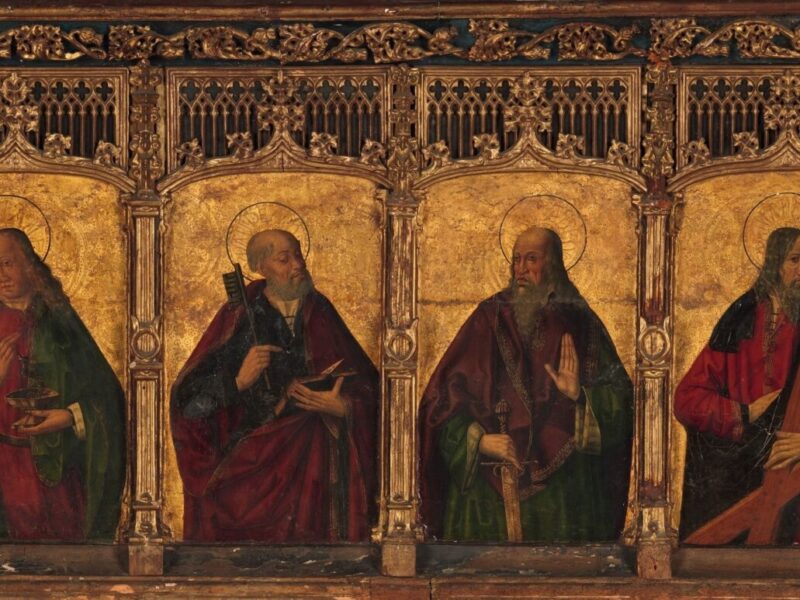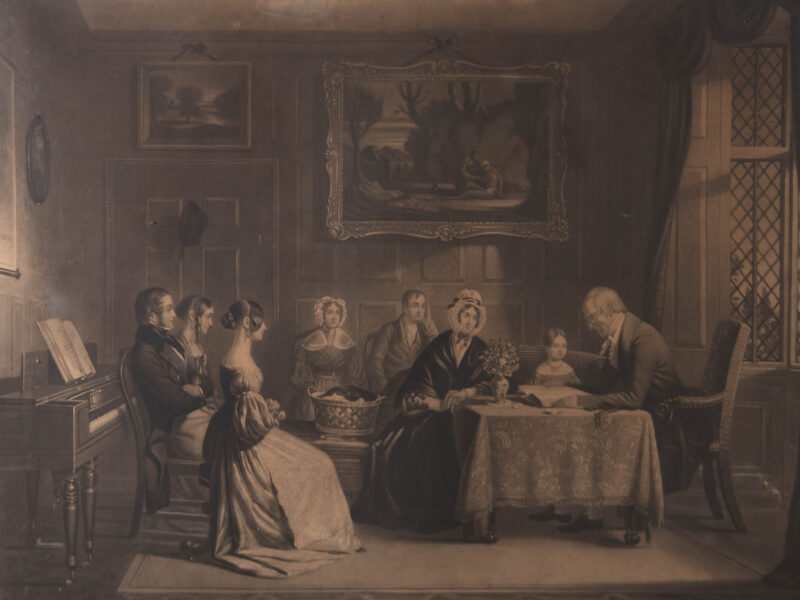Most of us are familiar with the term “liberal arts,” but few of us stop to consider this curious term. Why “liberal”? Presumably not because these are the arts favored by political progressives (even if many historic “liberal arts colleges” have become quite “liberal” in that sense). Those who do attempt to attach an etymology to this phrase are liable to highlight the connection between liberal and liberty, and say that these are the “freeing arts,” the studies that help us develop free minds, free habits, and free societies.
This is certainly true, and I would be the first to champion the value of the liberal arts on that score. However, if we are seeking the origin of the term, it would be more precise to say that these were the arts that free men studied—indeed, free men, specifically, not women; and certainly not slaves.
In the ancient world, this sort of education was reserved for those with freedom, wealth, and leisure; those who could dedicate their lives, ideally, to public service. It was an education of the elite, an education in leadership. As such, it was routinely contrasted with the servile arts, which were focused on mechanical and immediately practical tasks. An education in the servile arts was not one that necessarily left its students ignorant; they might learn a great deal about how tools worked, how to build, design, farm, and cook—indeed, they might master a great deal of what we would now call “math and science.” But they would be equipped with technical know-how to do particular tasks, not with holistic knowledge or wisdom.
In the pre-modern world, education was sharply divided along these lines, with only a very small elite receiving what was considered a full and true education. Today, education is more universalized, with our stated aim being to provide a thorough education for every girl and boy, no matter what their wealth and background. This universalization has been a mixed blessing, because there are two directions in which you can universalize education: either you treat everyone like a slave, or everyone like a free person.
Since the 19th century, we have by and large done the former. However, Christianity, and the Protestant Reformation in particular, sought to do the latter. This is a long and complicated story, to be sure, full of many imperfections, and they certainly didn’t always mean by “freedom” what we now do—but at the center of the Reformation was the proclamation, “For freedom Christ has set us free; do not be bound again by a yoke of slavery” (Gal. 5:1)
What did this freedom mean? Fundamentally, it meant that we were freed from the bondage of sin and death and equipped again to carry out in Adam and Eve’s dominion task—to share in God’s rule of the world. This is the purpose of a Christian liberal education—to equip free men and women who can, in the words of my mentor Oliver O’Donovan, “participate in the order of creation by knowledge and action.”
This means training young men and women who can see God’s fingerprints in the world and in His Word, who can rejoice in the mighty works that have been wrought by those who bear His image, and who can take up the challenge to do still greater works.
Of course, we should note that this means a certain kind of retrieval and renewal of the “servile arts.” Unlike the ancient Greeks, we do not think that “getting your hands dirty” is something only for slaves. Adam, after all, was the first gardener. A Christian liberal education trains young men and women for working in the world as servants of one another, not just for being statesmen or philosophers
Now, a Christian liberal education does hope to train young men and women to be statesmen or philosophers—one of the myths of modern education is a false notion of equality that refuses to celebrate excellence or recognize that God has blessed some people with the gifts to lead and to teach. Some parents are coming to a classical Christian school thinking, “my child is a star student; is the curriculum here going to be rigorous enough? Is it going to push her enough? Is it going to help her develop the leadership gifts that God gave her?” To this, we want to answer, “Yes!” But other parents are coming to a classical Christian school thinking, “My child struggles with a lot of subjects; he isn’t enthused about school a lot of the time; but I want him to be in an environment where he can learn about the world through God’s eyes. Is he going to be able to handle the workload? Is this school for him?” To this we want to answer, “Yes!”
Every child is called to develop the virtues of a good citizen, contributing to the flourishing of his or her community; and every Christian is called to take up the calling of Adam and Eve. Some are called to develop the skills of leaders and teachers in the church and the world. And we think it is important to recognize the special gifts of the latter while also educating both together. After all, they’re going to have to live together and work together in the same towns and churches anyway. Sending the top students off to elite prep schools where they don’t rub shoulders with the average students is a recipe for division and hostility in our communities, a recipe for social and political breakdown—as Charles Murray has chronicled in Coming Apart. Such students will grow up to be adults who do not understand one another and do not feel called upon to serve one another.
At classical Christian schools we believe that the way to train real leaders, while recognizing the different giftings that God has given each student, is to show each student a different vision of freedom from that of the ancients—lording it over one’s servants—or the moderns—living for oneself. “For you were called to freedom, brothers. Only do not use your freedom as an opportunity for the flesh, but through love serve one another” (Gal. 5:13). Classical Christian schools should aim to create classrooms in which the student who struggles with his Latin or his Algebra can praise God for the gifts of his classmate who aces these subjects, rather than being bitter or jealous. And even more importantly, they should aim to create classrooms in which the student who aces his Latin or his Algebra sees these as gifts to be used in service to others, rather than occasions for pride or vainglory. “For what do you have that you did not receive? If then you received it, why do you boast as if you did not receive it?” (1 Cor. 4:7)
A version of this essay originally appeared at the blog of Loudoun Classical School.
Learn about how to start a classical Christian school or co-op from the Anglican Schools Association.




'Educating Free Men and Women' has 1 comment
March 6, 2020 @ 8:28 am Cynthia Erlandson
Excellent article! Thank you!